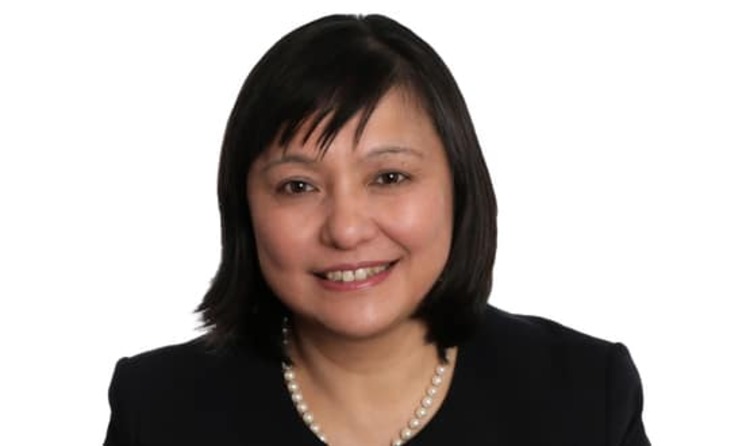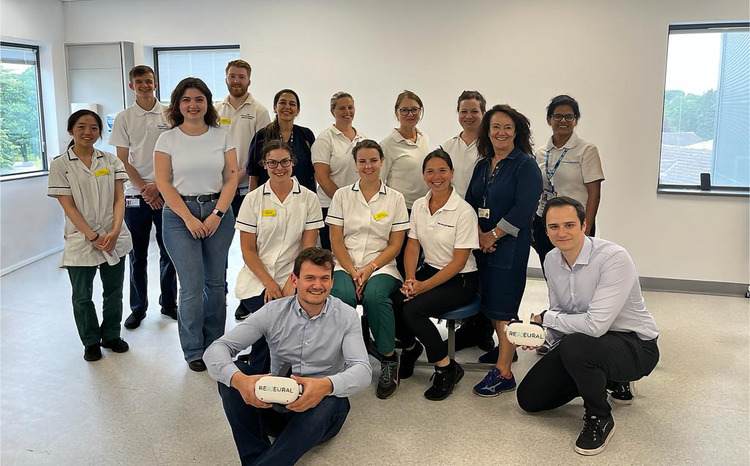Industry news in brief
- 16 September 2022

The latest Digital Health News industry roundup includes details of a new consortium for medical drone delivery, an award win for BridgeHead software and GP training from Livi to address gender imbalances in healthcare.
New partnership for medical drone delivery
Health supply chain specialist, Medical Logistics UK, has partnered with aero-logistics company Gadfin, aviation tech firm Altitude Angels and aerial logistics business Skyfarer to offer the UK healthcare supply chain a more cost-effective alternative.
The new consortium will bring a hub-centric approach to the UK healthcare system and unlock new opportunities for the safe and efficient delivery of pathology, organs, blood, PPE, cancer treatments and Covid-19 tests.
Elliot Parnham, founder of Skyfarer, said: “Skyfarer aims to create the world’s first multidisciplinary fulfilment centre for drone operations in the heart of England, utilising Altitude Angel technology above – this is explained as a Hub and will revolutionise the way drones are used and commercialised in society.”
As part of the partnership new ‘drone superhighways’ will be developed in the skies above Reading, Oxford, Milton Keynes, Cambridge, Coventry and Rugby. Over the course of two years, 165 miles of airspace will be developed, connecting key locations.
Richard Ellis, of Altitude Angel, said: “The Skyway superhighway network will help unlock the huge potential offered by unmanned aerial vehicles and be a catalyst to enable growth in the urban air mobility industry.
The initiative will use Gadfin’s Spirit-One long-range. Given that in the case of blood deliveries there is only a four-hour delivery window, this drone will support the delivery of time-critical supplies in a cost-effective way.”
New AI innovation centre for medical imaging
Qure.ai and Erasmus MC, University Medical Center Rotterdam, have joined forces to launch the AI Innovation Lab for Medical Imaging.
The centre will conduct detailed research into the use of AI to detect abnormalities for infectious and non-infectious disease. It hopes to provide guidance to clinicians on best practice for adopting the technology into their own specific requirements.
The lab will be run by Erasmus MC, a leading innovator in healthcare and will use AI technology from Qure.ai. The initial research focus will be on musculoskeletal and chest imaging, with the partnership set to last for three years.
Dr. Jacob J. Visser, chief medical information officer, value-based imaging, at Erasmus MC, said: “We are delighted to be partnering with Qure.ai, as we see the adoption of AI in healthcare at a critical juncture, where clinicians are asking for expert advice on how best to evaluate the adoption of the technology.
“In Qure’s work to date, it is clear they have gathered detailed insights into the effectiveness of AI in healthcare settings, and together we will be able to assess effective use cases in European clinical environments.”
Sussex Health and Care’s remote monitoring service deemed ‘safe and effective’
An NHS evaluation into a remote monitoring service from Sussex Health and Care to manage Covid patients has been found to be ‘safe and effective’. The Oximetry @ Home service, run with Inhealthcare, was also found to help reduce the demand on other healthcare services.
The service was set up for high-risk and clinically vulnerable patients to manage the surge in Omicron cases. Between January and May this year, GPs referred more than 2,000 patients to it. According to the ICS evaluation this saved up to 440 emergency attendances, 750 GP visits and 1,150 calls to 111.
Through Oximetry @ Home patients were monitored three times a day using a pulse oximeter, with clinical questions sent via text, email or phone. The aim of the service was to release capacity in clinical teams, support those who needed the most help and enable patients to self-manage their Covid symptoms.
Bryn Sage, chief executive of Inhealthcare, said: “This evaluation demonstrates that remote monitoring can provide a clinically safe and effective route to manage patients at home, minimise contact for positive Covid cases and significantly reduce demand on A&E departments, general practices and 111 call centres.
“It also underlines the importance of digital inclusion and patient choice as many people clearly feel more comfortable using telephones to engage with remote monitoring services.”
The results of the evaluation will be used by Sussex Health and Care to inform the future development of other remote monitoring services.
BridgeHead Software receives cybersecurity award at 2022 MedTech Breakthrough Awards
BridgeHead Software has been awarded the ‘Healthcare Cybersecurity Innovation Award’ at the sixth annual MedTech Breakthrough Awards.
The annual awards programme recognises outstanding products and companies in the global health and medical technology market.
Jim Beagle, president and CEO of BridgeHead, said: “We are delighted to receive this award from MedTech Breakthrough – especially at a time when cybersecurity is high up on the healthcare agenda.
“Healthcare is one of the most targeted industries for ransomware and malware attacks. As a result, we have experienced a large increase in demand for our CBaaS and CBaR solutions over the last year.”
The company’s new Cloud Backup-as-a-Service (CBaaS) and Cloud Backup and Recovery (CBaR) products are empowering healthcare organisations to use the cloud to backup and restore mission-critical data and systems. This is particularly important in the event of a system outage, data corruption, natural disaster or cyberattack.
Beagle added: “BridgeHead helps hospitals anticipate and mitigate the risk and damage of these cyberattacks. Hospitals need strong digital defenses to protect their patients, employees, and other stakeholders.
“For over 25 years, BridgeHead has been leading the way in safeguarding clinical, patient, and administrative data; and we will continue to focus our energy and innovation in healthcare.”
PHIN publishes information supporting patient choices for cataract surgery
The Private Healthcare Information Network (PHIN) has published new information for anyone considering cataract surgery.
The information focuses on patient-reported health improvements following cataract surgery, so that potential patients can be better informed about how likely it is their operation will improve their health.
The new information is being published for around one fifth of the 227 independent hospitals that provide cataract procedures. It will support other information already available at phin.org.uk on hospital performance.
Plus, the information is available in a downloadable and analysable format to help public authorities, researchers, clinicians and hospitals to understand and analyse services to private patients.
Jayne Scott, PHIN chair, said: “The publication of health improvement information following cataract surgery is a hugely positive step in helping patients to make informed choices about their private healthcare.
“It is also important information for hospitals, consultants and others within the sector to help identify where improvements can be made in the care they deliver. PHIN will continue to work alongside hospitals to increase future participation and response rates.”
Livi offers free women’s health training to UK GPs
Leading digital healthcare company Livi is offering UK GPs free women’s health training to help close the gender health gap.
Through its Miss Diagnosed campaign it will offer a series of live and recorded events.
According to Livi the initiative is vital, as its research revealed 57% of women feared they’d been misdiagnosed at some point, with 22% of those women believing it came down to their gender. Additionally, 28% of women believe GPs aren’t properly trained in all aspects of women’s health.
The first half-day event in the series will be held on October 7 at The Royal College of Obstetricians and Gynaecologists (RCOG). There will be 200 in-person spaces and the session will also be recorded and shared online.
Dr Bryony Henderson, lead GP at Livi, said: “Until about 25 years ago, almost all medical research was carried out on men, which has created a significant gender health gap, and led to worse outcomes for many women.
“Digital healthcare has a huge role to play in closing the gender health gap, and Livi is committed to providing specialist women’s health training covering themes such as menstruation and menopause, not only to our own GPs, but to thousands more doctors across the UK.”
There is no charge for the training and GPs can collect CPD points for attending.
Survey reveals digital health market ready for revolution
A survey from law firm Taylor Wessing has found that three-quarters of digital health leaders believe the industry has reached saturation point when it comes to wellness solutions.
In light of this, those surveyed believe the digital health market is set for a revolution and has the ability to transform acute and urgent medical care.
Alison Dennis, partner and co-head of the firm’s international life sciences and healthcare sector, said: “Digital health is on the precipice of moving from general wellbeing to addressing some of the major healthcare concerns we’re facing across the globe.
“We’ve passed the stage of counting steps and calories, and products are growing in ambition, complexity, and sophistication. It’s a massively exciting time for the industry that will completely change the way everyone interacts with the healthcare system, improving medical access across the world and bringing cutting-edge scientific developments into everyday technology.”
The Breakthrough Digital Health survey also revealed that:
- 74% fear that rising inflation, interest rates and geopolitical tension will reduce investors’ risk appetite.
- 50% of respondents intend to target new markets.
- 44% of those surveyed are looking for new partnerships.
- 78% said they felt pressure to accept terms in investor negotiations that they were uncomfortable with.
- 32% said protecting against regulation wasn’t a priority.
For those digital health start-ups looking to scale up operations, the experts at Taylor Wessing have named funding, regulation and competition are the biggest threats to succeeding in the acute market.




